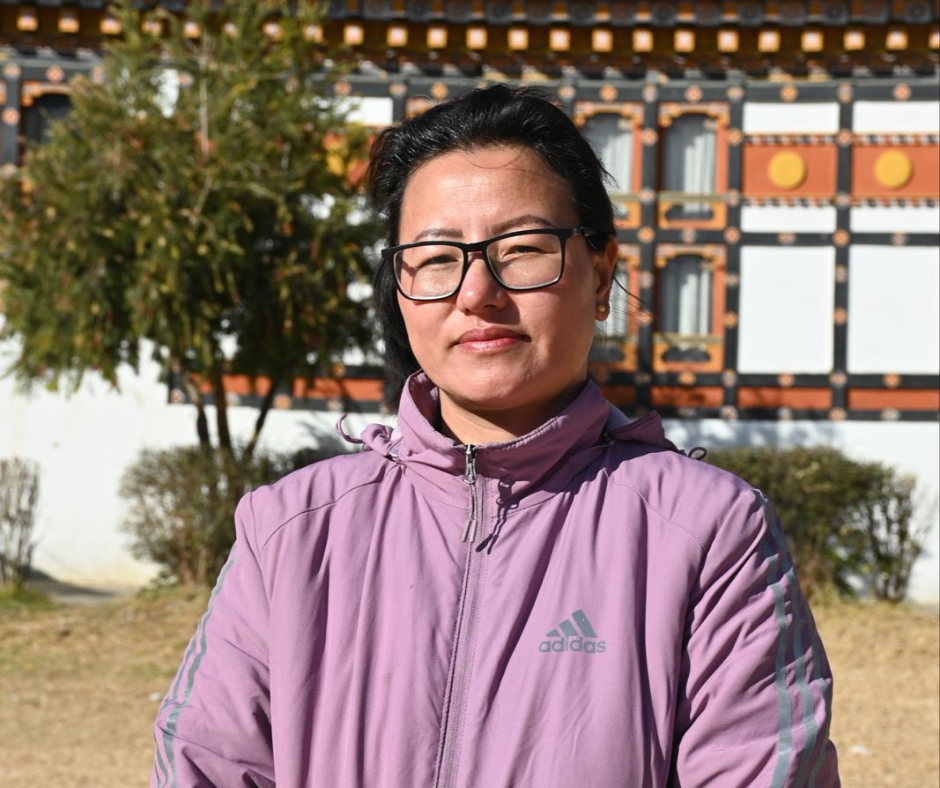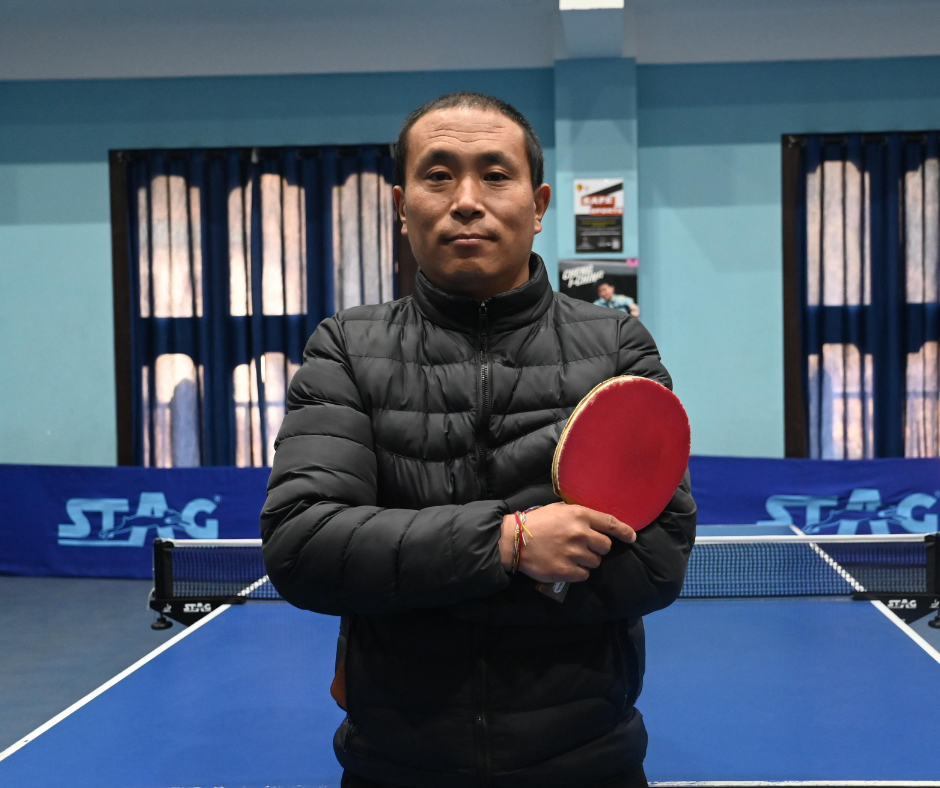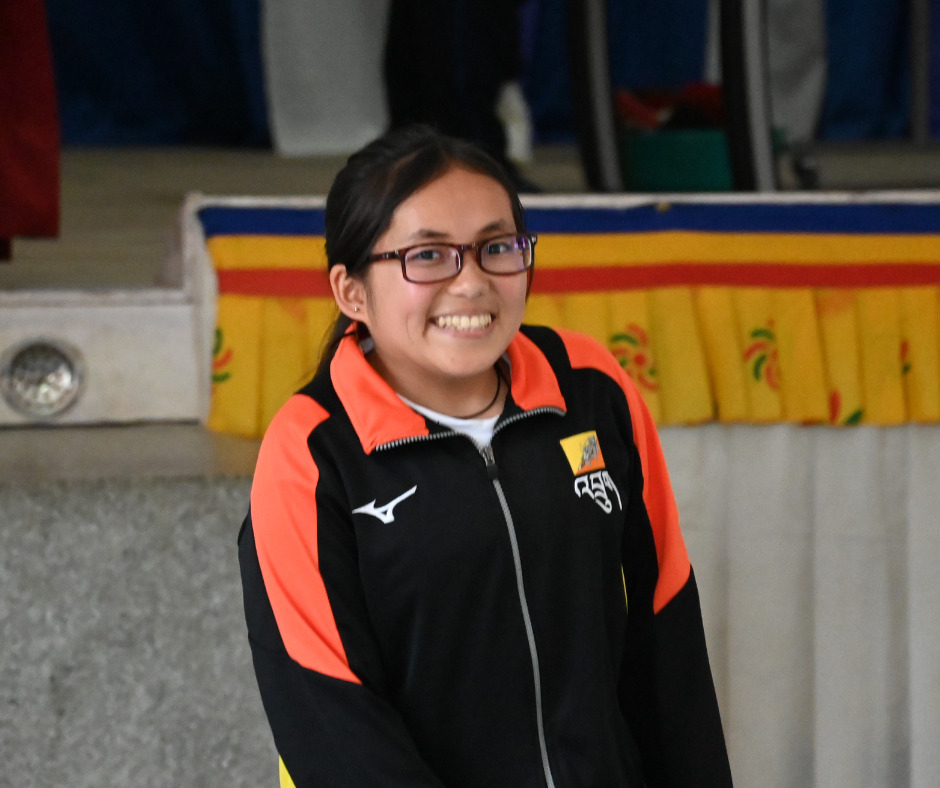Empowering Through Sports
An Interview with Coach Dawa Lham
From your perspective as a coach, what is the importance of sports in the lives of individuals with disabilities?
Sports hold incredible value for individuals with disabilities. They go far beyond physical exercise—they help build confidence, foster independence, and give individuals a space to express themselves. Through sports, people with disabilities can challenge themselves, achieve personal milestones, and feel a sense of inclusion within the larger community. It also plays a powerful role in breaking down societal barriers and changing perceptions.

What are the key benefits of sports for individuals with disabilities—physically, mentally, and socially?
The benefits are multi-dimensional:
- Physically, sports enhance strength, coordination, flexibility, and overall health.
- Mentally, they reduce stress, anxiety, and depression while boosting confidence and mental resilience.
- Socially, sports allow people to connect, form friendships, and build strong peer networks.
- Additionally, engaging in sports helps develop life skills such as discipline, goal-setting, teamwork, and leadership—all of which carry over into daily life.
It’s truly a path to holistic well-being and personal growth.
What are the current opportunities and career scopes in para-sports—both within Bhutan and internationally?
There are growing opportunities, both nationally and globally:
- In Bhutan, athletes can compete at the national level and may receive support such as scholarships and stipends through the Bhutan Paralympic Committee (BPC) and national federations.
- Internationally, there are platforms like the Asian Para Games, World Cups, and the Paralympics, where athletes can represent Bhutan.
- Beyond being athletes, individuals can pursue careers as coaches, technical officials, or administrators in para-sports.
The global para-sports landscape is expanding, and Bhutan is gradually creating more space for athletes to grow professionally in this field.
How can individuals with disabilities begin their journey in para-sports and enroll in a sport of their interest?
Starting out is easier than many think. Here’s how:
- First, explore different para-sports—such as Para Shooting, Para Archery, Para Badminton, or Para Table Tennis—to see what suits their interest.
- Then, reach out to federations like the Bhutan Paralympic Committee or individual sports bodies such as ours at the Bhutan Shooting Federation. We provide guidance on classification, training, and enrollment.
Lastly, participate in introductory programs such as awareness camps, winter/summer training sessions, and inclusive festivals. These offer safe and encouraging environments to try out sports and find a fit.
What are some common challenges faced by para-athletes during training and competition?
Several challenges still need to be addressed:
- Facility Accessibility: Many sports venues are not fully adapted for athletes with physical or sensory disabilities.
- Lack of Equipment: Specialized gear can be expensive or hard to source.
- Limited Awareness: Para-sports don’t always receive the recognition or coverage they deserve, which affects both funding and participation.
- Financial Constraints: Some athletes struggle to afford travel, coaching, or equipment without consistent support.
These are challenges we’re working hard to overcome through better planning, advocacy, and collaboration.
What are the major advantages of participating in para-sports—both on a personal and social level?
The advantages are significant:
- Personally, para-sports improve self-confidence, help build resilience, and enhance independence.
- Athletes often gain a greater sense of purpose and have the opportunity to travel and explore new environments.
- Socially, they build strong peer networks, encourage community engagement, and play an important role in changing public perceptions of disability.
- Para-athletes often become role models, inspiring others and helping to advocate for inclusion and equal opportunity.
In short, para-sports open doors—not just for individual athletes, but for society to become more inclusive and empathetic.


